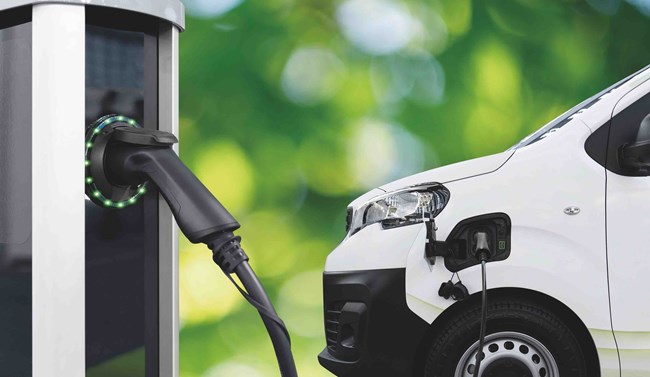- Toyota Hilux range gains new rally-inspired GR Sport II variant
- Remarketing: Pick of the bunch
- GA Commercial acquires first vans through Vanaways
- 'Luxury' tax on expensive pick-up trucks suggested
- ADVERTISEMENT FEATURE: Essential advice to avoid the van fleet ICE-berg
- ETRUX launches new Ford E-Transit Trizone
- Renault gives UK debut to Master E-Tech at CV Show
- Isuzu D-Max long-term test – Latest Report
- Isuzu D-Max V-Cross Steel Edition revealed
- IVOTY Report: Stellantis explores the hydrogen proposition
AFP rallies fleets amid electric van confusion
Date: Wednesday, September 27, 2023 | Author: Sean Keywood

The Association of Fleet Professionals (AFP) is urging fleets to step up lobbying efforts amid what it calls ‘ongoing confusion’ over 4.25t electric van rules.
A concession was created in 2019 by the Department for Transport (DfT) allowing electric LCVs to weigh up to 4.25t, rather than the usual 3.5t, to allow for the increased weight of their batteries.
However, the AFP says that while the Office for Zero Emissions Vehicles (OZEV) believes that the vehicles have been deregulated from all of the operator responsibilities that normally apply to vans over 3.5t, the Driver Vehicle Standards Authority (DVSA) and DfT believe some still apply.
The AFP says its current interpretation is that these requirements include an MOT test every 12 months from new, the fitting of speed limiters, and in some situations the use of tachographs.
AFP chair Paul Hollick said many of the organisation’s members had cancelled orders for 4.25t electric vans due to the confusion.
He said: “We’re big fans of the 4.25t derogation. It makes absolute sense that the adoption of electric vans around the crucial 3.5t mark should be made easier for as many fleets as possible.
“However, what we are seeing is confusion with, to adopt an old cliché, the left arm and the right arm of government seemingly at odds. This wouldn’t be so bad if the situation hadn’t now been dragging on for several months. It’s incredibly frustrating.
“Fleets are receiving all kinds of conflicting advice – not just from OZEV and the DVSA but manufacturers, dealers, leasing companies and others – with no resolution in sight. Instead, they’re understandably throwing their hands up in the air and we hear of many operators simply cancelling orders.”
Hollick said that the AFP was now stepping up its lobbying of OZEV, the DVSA and the DFT to bring their interpretations into line with the original intention that 4.25t vans can be operated exactly like their 3.5t equivalents, and was asking individual fleet operators to do the same.
He said: “We’re urging as many people within the fleet industry to make their feelings known as soon as possible. It really does seem that at a point in time when we should be seeing the government help to enable large scale adoption of electric vans for major operators, they’re allowing a small muddle to fester into a minor crisis.
“We first highlighted this issue in May and little or no progress seems to have been made. It needs to be resolved now.”
Hollick added that the issue was adding to a general sense among some fleets that operating electric vans was simply not worth the hassle in the short-to-medium term.
He said: “As the AFP has detailed in recent months, electric van adoption is generally proving much more difficult for many fleets than electric cars.
“This is especially true given concerns over range and payload, while unnecessary problems such as these 4.25t issues create additional hurdles that are proving frustratingly difficult to sort out.”
View The WhatVan Digital Edition


